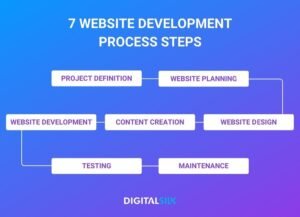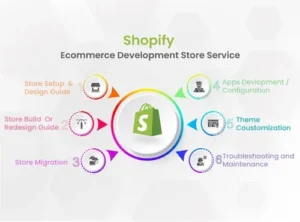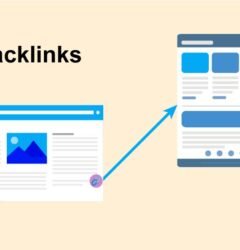Website Developments in Different
Platforms

1.Website Developments in Different Platforms:Choosing the Right Tool for Your Needs
Website Developments in Different Platforms.In today’s digital age, having an online presence is essential for businesses, creatives, and professionals alike. However, creating a website that represents one’s brand or personal identity can be a daunting task, particularly given the multitude of platforms available for website development. Each platform offers unique features and tools, catering to various levels of expertise, design needs, and budget considerations. This essay explores some of the most popular website development platforms, highlighting their specific strengths and limitations to help users make an informed decision.
- Introduction:
“In today’s digital age, having an online presence is essential for businesses, creatives, and professionals alike. For more insights on how to establish a strong online presence, check out our [Beginner’s Guide to Building a Digital Brand].” - WordPress Section:
“WordPress is known for its strong SEO capabilities, making it an excellent choice for content-driven websites. If you’re interested in learning more about SEO, read our [SEO Tips for New Website Owners].” - Shopify Section:
“Shopify supports various integrations with social media and third-party applications. For more on e-commerce strategies, explore our article on [Essential E-Commerce Trends to Watch].” - Conclusion:
“Each platform offers unique strengths, and understanding these differences is crucial for building a successful website. To learn more about optimizing your website, visit our [Guide to Website Performance Optimization].”

2.Website Development Platforms: The Versatility of
WordPress
Website Developments in Different Platforms.WordPress, initially developed as a blogging tool, has evolved into one of the most popular website platforms worldwide. Today, it powers nearly 40% of all websites, demonstrating its versatility and widespread appeal. WordPress’s strength lies in its open-source nature, which allows for extensive customization. Users can choose from thousands of plugins and themes to create a website tailored to their unique vision. Additionally, WordPress is known for its strong SEO capabilities, making it an excellent choice for content-driven websites and businesses aiming to reach a broader audience.
Despite its benefits, WordPress does have limitations. Advanced customization often requires some knowledge of coding, which can be challenging for beginners. Furthermore, managing multiple plugins may create maintenance needs and occasional compatibility issues. Nevertheless, for those willing to invest time in learning or working with developers, WordPress provides an unmatched level of flexibility.
3. Website Developments in Different Platforms(Wix): Simplicity and Accessibility
Website Developments in Different Platforms. For beginners or small business owners with limited technical knowledge, Wix offers an accessible and straightforward approach to website building. With its intuitive drag-and-drop interface, Wix allows users to build visually appealing websites quickly and with minimal hassle. Its extensive template library and app market also provide tools for e-commerce, blogging, and SEO, meeting a wide range of small business needs. The platform’s built-in hosting and automated maintenance make it ideal for users seeking a low-maintenance option.
However, while Wix is convenient, it comes with certain drawbacks. Customization options are more limited than in open-source platforms like WordPress, which may be a drawback for users seeking highly specific design or functional features. Furthermore, transferring a website away from Wix can be challenging, as the platform does not support easy migration. For many small businesses and individuals, though, the ease of use outweighs these limitations, making Wix a popular choice for beginners.
4. Shopify: A Solution for E-Commerce
Website Developments in Different Platforms. For businesses focused on online retail, Shopify is a specialized platform designed to meet e-commerce needs. With integrated payment solutions, inventory management, and customizable themes, Shopify allows users to set up a fully functional online store. The platform also supports various integrations with social media and third-party applications, providing a seamless shopping experience for customers and a manageable backend for store owners.
One downside to Shopify is its cost, as monthly fees can add up when additional plugins and apps are included. Additionally, Shopify’s design customization is somewhat limited in comparison to more flexible platforms. Nonetheless, Shopify remains an industry leader for small to medium-sized e-commerce stores due to its ease of use, reliability, and robust support for online sales.

5. Website Developments in Different Platforms(Squarespace): Elegance and Visual Appeal
Website Developments in Different Platforms. Squarespace is widely celebrated for its design-focused approach, offering visually rich templates ideal for portfolio sites, creatives, and small businesses. The platform’s drag-and-drop builder allows users to create professional-looking websites without needing coding knowledge. Squarespace also provides integrated e-commerce tools, blogging capabilities, and SEO options, making it a well-rounded platform.
However, Squarespace’s focus on simplicity and design does come with some limitations. Its customization options are more restricted than those in open-source platforms, which may not meet the needs of users seeking highly unique website elements. Additionally, Squarespace’s pricing is on the higher side, especially for e-commerce plans. Nonetheless, for users seeking a visually compelling website without the need for complex functionalities, Squarespace is an ideal option.
6. Website Developments in Different Platforms(Webflow): Bridging Design and Code
Website Developments in Different Platforms. Webflow occupies a “unique position in the website development landscape, offering a balance of design freedom and technical control that appeals to both designers and developers”. With Webflow, users can “create visually intricate websites without coding from scratch, while still maintaining the option to add custom code if desired”. The platform also includes powerful CMS features, making it suitable for content-rich sites.
The primary drawback of Webflow is its learning curve; its tools require a basic understanding of web design principles, which may be intimidating for beginners. Additionally, Webflow’s pricing can be costly for certain plans. For experienced users or those willing to invest time in learning, Webflow offers a blend of creativity and control rarely found in other platforms.

Conclusion: Choosing the Right Platform
Website Developments in Different Platforms. Choosing the right website development platform ultimately depends on individual needs and priorities. For those seeking flexibility and extensive customization, WordPress stands out as a robust choice. Beginners and small businesses may find Wix’s ease of use particularly beneficial, while Shopify remains the go-to solution for e-commerce. Squarespace appeals to those who prioritize design, and Webflow caters to users looking for control over both design and code.
Each platform offers unique strengths, and understanding these differences is crucial to building a website that aligns with one’s vision and goals. By evaluating the available options, users can select a platform that not only meets their current needs but also supports the growth and evolution of their online presence.
List of Blogs


